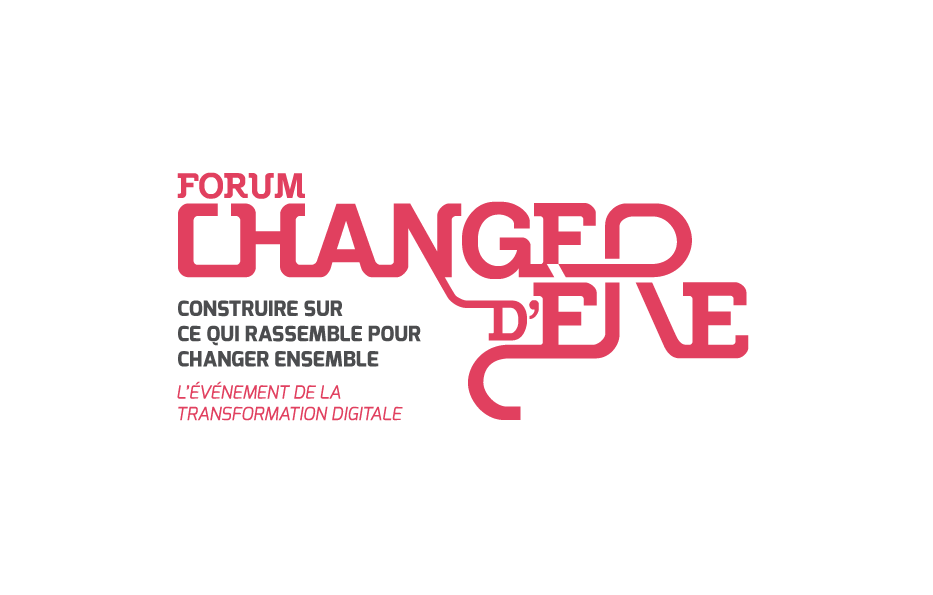Charles Goldfinger* is an international consultant specialized in questions concerning the impact of information technologies on corporate strategy and economic policies. Véronique Anger: What do you think about the Net Economy 12 principles proposed by the American journalist Kevin Kelly who, for example, considers that 0-rated Net services are in fact profitable ? What do you think about his opinion of a digital society and its subsequent development?
Author of several books, he issues articles about international finance, information technology’s impact and information economy on a regular basis. He lectures a lot and leads seminars on these matters for institutions such as the World Economic Forum in Davos, the World Bank and many multinational companies.
Charles Goldfinger: The value of Intangible Economy* is not really recognized for the moment. By contrast, it already accounts for over 1/3 of world trade and keeps developing. New Economy actually yields many profits. Capturing economic value is the issue at high stake. But even though it is easy to value an object, how to evaluate the price of intangible assets such as ideas ? When not shared, one idea is worthless; when shared, how can you value it ?
There are several models called » business models » in the Internet language. Just as Kelly has proposed his Net Economy principles, I have defined my « Laws of Intangible Economy* ». The most important is : « Catch the value where and when you can ».
The property question is clear enough in Tangible Economy. Purchased goods are charged on transfer. With Intangible Economy, economic value has become, however, very volatile. Some people think one must be paid for services; others think one must be paid for the access or the content. Finally, some of them prefer third-party-payer systems…
According to me, the better systems are those that mix all the models, as it is the case withYahoo. Thanks to a chain of users who pay for (advirtisers, e-companies** …), he manages to make profits while granting its customers a free access to the Internet. In the same way, a part more and more significant of AOL’s returns is got from e-commerce.
This notion of dynamic tarrification is essential to understand, because what seems to be free on the Internet may actually yield profits.
VA: This is the principle on which Strategic Di@logues work. About 2,000 people will read this interview. The important thing is not to charge the readers but to identify the profiles of non-subscribers who spontaneously connect themselves to StrategicDi@logues…
CG: In this case, the system of assessment is not based on any cost-in-use since the broadcasting is free.
Value monetization is still rather informal in Digital (or Intangible) Society, and the old economy rules are far from being applied to it …
VA: With information intermediaries (or infomediaries of John Hagel), new forms of intermediation and new added values are supposed to appear. How do you imagine this new intermediation for the five years to come? And in which sectors?
CG: It seems to me the notion of information intermediary as defined by Hegel is wrong. According to him, the true « infomediary » is the one who is paid by end customers. End customers are, however, quite reluctant to pay when goods are intangible and when micro-payments are concerned (for instance, « paying with order » FF 5 or 10 for a piece of information).
I think , for very simple reasons, that the Internet increases needs for intermediation. A new economic model is always followed by new needs. With the Internet, new services, new jobs, and a new type of intermediaries enabling people to cut the costs for information retrieval are created.
The intermediation market is very large and booming, and the stakes are high : intermediary estate agents who are looking for the best lending rates (E-loans, …); very useful and free access to directories (Yahoo, AOL, …); specialized and non-specialized e-portals ( Yahoo Real Estate, E-trade, …) that offer aggregate information and transactions; customized marketing (Dun & Bradstreet, …) …
In fact, this is not intermediation but « cyberintermediation ». It is difficult to foresee how cyberintermediation will evolve, but I can imagine-and I’m not the only one – that it will be automated. Many studies are currently carried out on this subject.
VA: According to you, who regulates the intangible world ? The government, e-users,…?
CG: Interesting question… In fact, you are free to chose. The Net is a big « market »; everything can be sell and by on it.
Today, the intangible world is regulated by several entities : public authorities, courts, supranational and self-regulation authorities. This system is not perfect at all, but it’s better than nothing.
Privacy is one of the most fought-over battlegrounds of the information economy.Who do the information and data agregates belong to? Could some elements of private life be considered as completely private, mixed or public? In which context can I use them ? The key question is to know how to introduce elements of competition into regulations or who will control the controllers? Is it possible to define several jurisdictions to control regulations? How to coordinate them?
Certain people think the regulations should be integrated to Law. I should prefer people to think about another better and more original solution to stray from the beaten track …
* Intangible Economy, Information Society or the Idea Market (intellectual capital, the service industries, leasure, education, culture, …)
** E-companies pay a percentage on Yahoo online sales
*Charles Goldfinger is in charge of Global Electronic Finance (GEF) Management SA, a strategic consulting firm based in Brussels. He also advises the European Commission on the e-commerce financial aspects.
An architect of the Art School in Paris, a Dr. In Regional Economy of Berkeley (California), Charles Goldfinger has written : « Travail et hors -travail- vers une société fluide » (98); « L’utile et le futile-l’économie de l’immatériel » (94) and « La géofinance » (86) , which has won the Prize of the best financial book in 1987. For further information : http://www. Charles_gold@compuserve.com
To discover (or to read again) Les Di@logues Stratégiques :
» Diversity sustains collective intelligence » Pierre Lévy (Janvier 2002)
» Capitalisation of knowledge in the Cap Gemini Ernst & Young company » Jacques Collin (Octobre 2001)
» E-Learning, key element of the future internet » Joël de Rosnay (March 2001)
*Laws of Intangible Economy :
Scarce does not mean valuable, abundant does not mean worthless
End of information asymmetry: Customer is always smart
Wager economy: Leveraging success is more important than avoiding failure
Inclusivity: this is a two way street
Corporate strategy: Schizophrenia rules
Don’t compete, coopete
Intangible markets: Catch the value where and when you can
Measurement systems: Intangible is primary, tangible secondary.
Economic value : the issue at hig stake in intangible society
Comments 0
- Les Di@logues Strategiques on 2 mai 2010 inLes Di@logues Strategiques
Non classé
(Les Di@logues Stratégiques® N°10 – 12/00)



